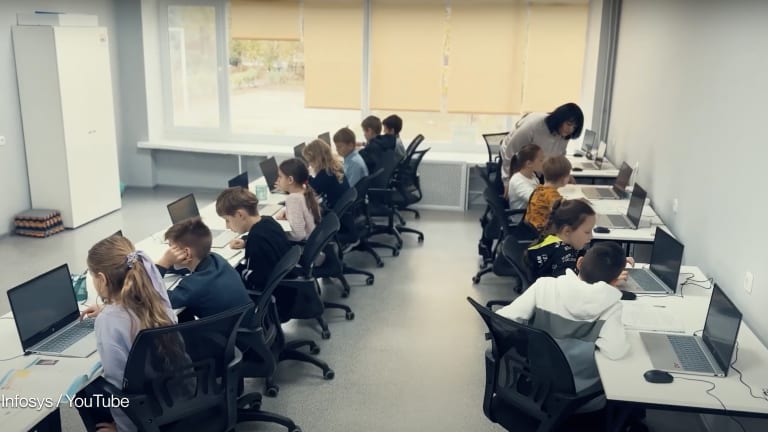
CANBERRA — In Australia, the recently introduced Modern Slavery Act has seen the private sector demand more training and support — not only to understand their responsibilities under the act but to ensure human rights and social welfare are at the center of their business model.
This has also led to new opportunities to grow business.
“It is clear that most of them [businesses]— and SMEs in particular — still do not know what the UNGPs are, let alone what they mean to their activities.”
— Margaret Stuart, corporate and external relations manager, NestléBuilding business opportunities: Pillar Two
In April, corporate sustainability expert and former legal advisor to the U.N. special representative on business and human rights, Vanessa Zimmerman, launched a new consulting business that acknowledged this market gap and demand for service: Pillar Two.
“The tipping point for launching Pillar Two was not just the modern slavery legislation but also the various investor interest around human rights,” she explained to Devex. “Civil society as well was really starting to engage with Australian companies about their behavior both at home and internationally ... it was a good time for me to use the multisectoral experience to say I’m here and available to try and help companies to look at these issues.”
Through Pillar Two, Zimmerman aims to provide education and support to look at modern slavery risk in addition to building a wider right-based approach to support social demand for ethical business practices.
Private sector and development:
► A look at UNDP's private sector strategy
► Purpose before profit: Some progress, gaps remain
► World Bank's David Malpass talks 'decentralization' and private investment
According to Zimmerman, it is important to understand the level of maturity each business has on human rights and develop strategies to support their unique journey. Through Pillar Two, Zimmerman will help Australian business understand how to respect human rights: to know human rights risks and the tools and methods available to manage those risks.
“For a company starting from scratch, this might be developing a human rights policy, reviewing countries they operate in, and identifying potential human rights risks in those regions, or speaking to the board and educating them on what human rights actually means — including for their company. This approach is principled, integrated, and practical — if we don’t do this in a way that makes sense, it won’t be taken up,” she said.
Another important service is helping businesses bridge the gap between them and civil society.
“Sometimes there is an ‘us and them’ mentality but if both sides can hear each other they can achieve more,” Zimmerman said.
“One of the things I am looking at to provide as a service is setting up stakeholder consultation for companies. It is not always a comfortable conversation for a chairman to sit there and listen to people voicing concerns about a company, but we need to start having these conversations,” she continued.
Supporting knowledge development: Nestlé
While new businesses are emerging, sector leaders are also stepping up. In May, Nestlé opened its interactive human rights training module — free to use or adapt in any way that companies see fit. The training module has evolved over eight years and draws on the work of Nestlé and its partner the Danish Institute for Human Rights.
“Our first human rights training tool was released in 2011, at the same time of our human rights due diligence program,” Margaret Stuart, corporate and external relations manager at Nestlé, explained to Devex.
“At the time, our training was very much focused on the U.N. Guiding Principles and the definition of human rights themselves. But over time we have gathered a lot of on-the-ground experience and these learnings are reflected in this new tool.”
Within Nestlé, the impact of the tool has been assessed through human rights impact assessments — and showed that in countries where the training had been rolled out, employees were more informed about their rights and responsibilities.
The decision to release the tool came from its engagement with other businesses — with it evident that greater education was needed.
“From our experience interacting with a range of different businesses around the world, it is clear that most of them — and SMEs in particular — still do not know what the UNGPs are, let alone what they mean to their activities,” Stuart said.
“Quite a significant number of these companies are involved in a way or another in multinationals’ value chains, for example as suppliers to bigger companies, or as customers,” Stuard said.
In supporting the growing need, quality needs to be maintained
“If there are more service providers out there, the greater the risk is of diluting things,” Kylie Porter, executive director at the Global Compact Network Australia, told Devex. “Business and human rights is a very complex area, and I would say there are a limited number of specialists — in Australia and globally. That is something we need to be aware of and the quality of service needs to be maintained despite the growth in demand.”
“Every company will have its own set of very broad human rights risks,” Porter said. “For a finance company, that is going to be acutely different from a fast-moving consumer company.”
She said understanding human rights risks and how they impact business is fundamentally part of training — and it needs to be tied back to the services and products and a business’ way of engaging suppliers and customers.
“The work those human rights specialists do in sitting down with a company and understanding where they are on the journey and what risks they are facing, that is fundamental,” Porter said.








